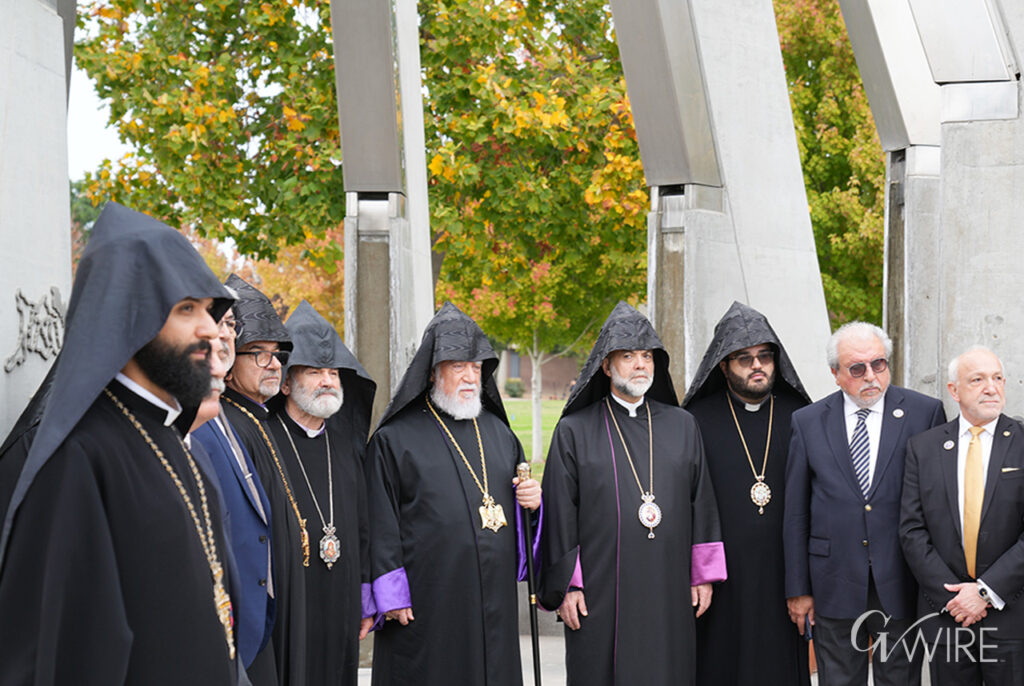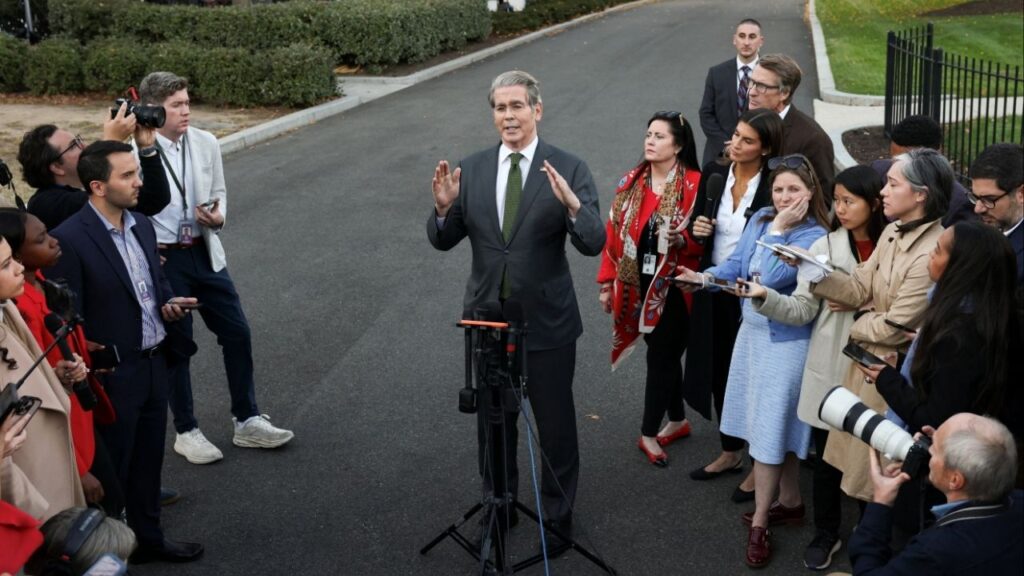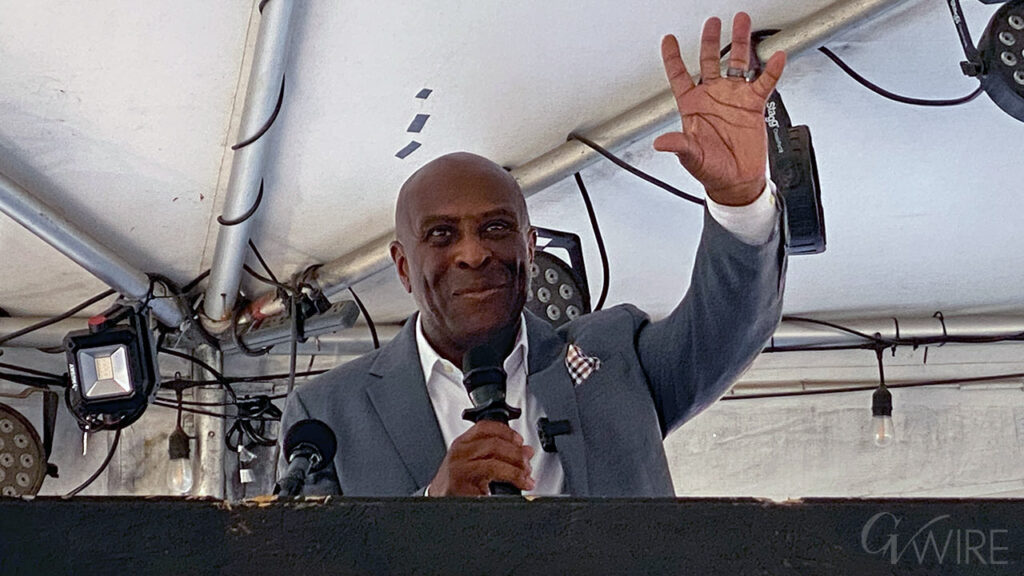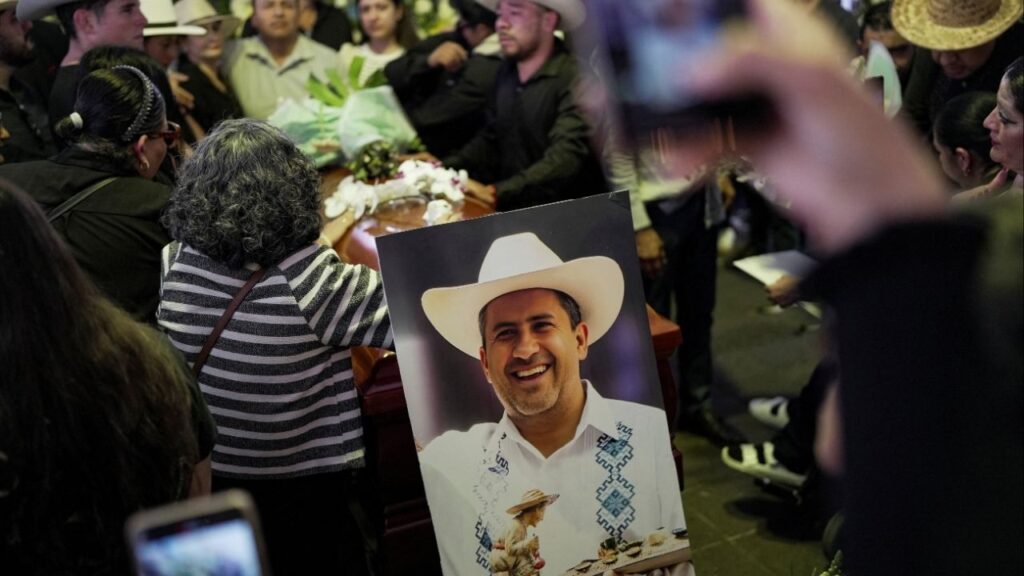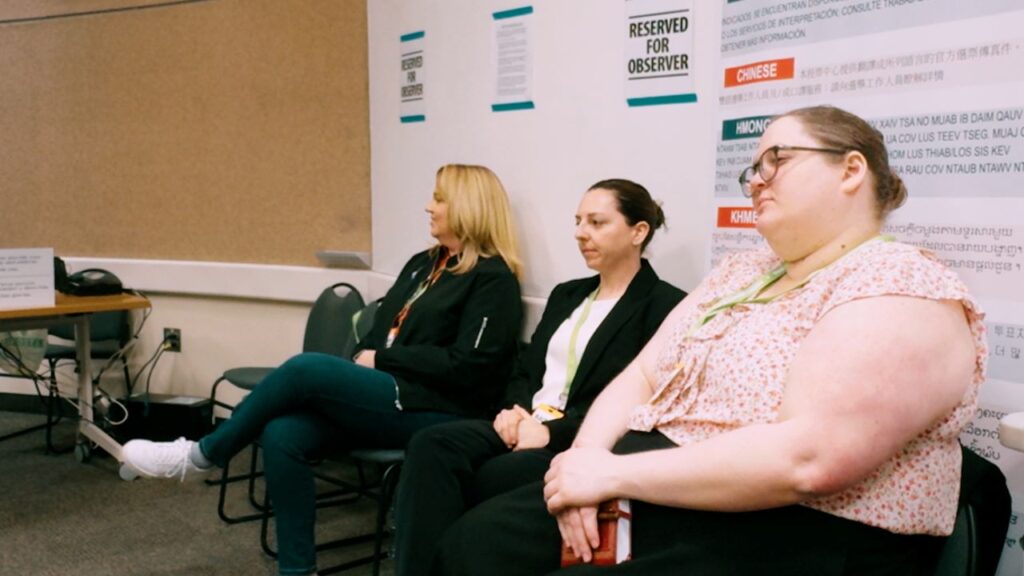The room in which Muhammad Sinwar and four other militants are said to have died inside a tunnel in southern Gaza, June 8, 2025. To Israelis, the location of an underground passageway highlights Hamas’s abuse of civilians but to Palestinians, Israel’s decision to target it highlights Israel’s disregard for civilian life. (Patrick Kingsley/The New York Times)

- The Israeli military escorts a reporter from The New York Times to a tunnel beneath a major hospital in southern Gaza Strip.
- To Palestinians, Israel’s attack on the hospital compound highlights its disregard for civilian activity.
- “If they weren’t building their infrastructure under the hospitals, we wouldn’t be here," says Israeli Brig. Gen. Effie Defrin.
Share
|
Getting your Trinity Audio player ready...
|
Two feet wide and less than 6 feet tall, the tunnel led deep beneath a major hospital in southern Gaza Strip.
The underground air bore the stench of what smelled like human remains. After walking about 40 yards along the tunnel, we found the likely cause.
In a tiny room to which the tunnel led, the floor was stained with blood. It was here, according to the Israeli military, that Mohammed Sinwar — one of Hamas’ top militant commanders — was killed in May after a nearby barrage of Israeli strikes.
What we saw in that dark and narrow tunnel is one of the war’s biggest Rorschach tests, the embodiment of a broader narrative battle between Israelis and Palestinians over how the conflict should be portrayed.
The military escorted a reporter from The New York Times to the tunnel, as part of a brief and controlled visit for international journalists that the Israelis hoped would prove that Hamas uses civilian infrastructure as a shield for militant activity.
To Palestinians, Israel’s attack on, and subsequent capture of, the hospital compound highlighted its own disregard for civilian activity.
Israeli Military Bores a Hole in Hospital Courtyard
In May, the military ordered the hospital’s staff and patients to leave the compound, along with the residents of the surrounding neighborhoods. Then, officials said, they bored a huge hole, about 10 yards deep, in a courtyard within the hospital grounds. Soldiers used that hole to gain access to the tunnel and retrieve Sinwar’s body, and they later escorted journalists there so we could see what they called his final hiding place.
There are no known entrances to the tunnel within the hospital itself, so we lowered ourselves into the Israeli-made cavity using a rope. To join this controlled tour, the Times agreed not to photograph most soldiers’ faces or publish geographic details that would put them in immediate physical danger.
To the Israelis who brought us there, this hiding place — directly underneath the emergency department of the European Gaza Hospital — is emblematic of how Hamas has consistently endangered civilians, and broken international law, by directing its military operations from the cover of hospitals and schools. Hamas has also dug tunnels underneath Shifa Hospital in Gaza City and a United Nations complex elsewhere in that city.
“We were dragged by Hamas to this point,” Brig. Gen. Effie Defrin, the chief Israeli military spokesperson, said at the hospital Sunday afternoon. “If they weren’t building their infrastructure under the hospitals, we wouldn’t be here. We wouldn’t attack this hospital.”

Defrin said Israel had tried to minimize damage to the hospital by striking the area around its buildings, without a direct hit on the medical facilities themselves. “The aim was not to damage the hospital and, as much as we could, to avoid collateral damage,” he said.
To the Palestinians who were forced from here, the Israeli attack on Sinwar embodied Israel’s willingness to prioritize the destruction of Hamas over the protection of civilian life and infrastructure, particularly the health system.
Israel Damages at Least 33 Hospitals in Gaza
According to the World Health Organization, Israel has conducted at least 686 attacks on health facilities in Gaza since the start of the Israel-Hamas war, damaging at least 33 of Gaza’s 36 hospitals. Many, like the European Gaza Hospital, are now out of service, fueling accusations from rights groups and foreign governments — strongly denied by the Israelis — that Israel is engaged in genocide, in part by wrecking the Palestinian health system.
“It’s morally and legally unacceptable, but Israel thinks it is above the law,” Dr. Salah al-Hams, the hospital spokesperson, said in a phone interview from another part of southern Gaza.
Although Israel targeted the periphery of the hospital site, leaving the hospital buildings standing, al-Hams said the strikes had wounded 10 people within the compound, damaged its water and sewage systems and dislodged part of its roof. It killed 23 people in buildings beyond its perimeter, he said, 17 more than were reported the day of the attack.
The tremors caused by the strikes were like an “earthquake,” al-Hams said.
Al-Hams said he had been unaware of any tunnels beneath the hospital.
Our journey to the hospital revealed much about the current dynamics of the war in Gaza.
No Palestinians in Sight
In a roughly 20-minute ride from the Israeli border, we saw no Palestinians — the result of Israel’s decision to order the residents of southern Gaza to abandon their homes and head west to the sea. Many buildings were simply piles of rubble, destroyed either by Israeli strikes and demolitions or Hamas’ booby traps. Here and there, some buildings survived, more or less intact; on one balcony, someone had left a tidy line of potted cactuses.
We drove in open-top jeeps, a sign that across this swath of southeastern Gaza, the Israeli military no longer fears being ambushed by Hamas fighters. Until at least the Salah al-Din highway, the territory’s main north-south artery, the Israeli military seemed to be in complete command after the expansion of its ground campaign in March.
The European Gaza Hospital and the tunnel beneath it are among the places that now appear to be exclusively under Israeli control.
It was not immediately clear how Sinwar was killed, and Defrin said he could not provide a definitive answer. He suggested that Sinwar and his allies may have suffocated in the aftermath of the strikes or been knocked over by a shock wave unleashed by explosions.
If Sinwar was intentionally poisoned by gases released by such explosions, it would raise legal questions, experts on international law said.
Defrin denied any such intent. “This is something that I have to emphasize here, as a Jew first and then as a human being: We don’t use gas as weapons,” he said.
In other tunnels discovered by the Israeli military, soldiers have used Palestinians as human shields, sending them on ahead to scour for traps.
Defrin denied the practice. The tunnel was excavated by Israelis, he said.
Reporting was contributed by Iyad Abuheweila from Istanbul; Ameera Harouda from Doha, Qatar; Natan Odenheimer from Jerusalem; and Gabby Sobelman from Rehovot, Israel.
This article originally appeared June 8, 2025, in The New York Times.
c.2025 The New York Times Company






